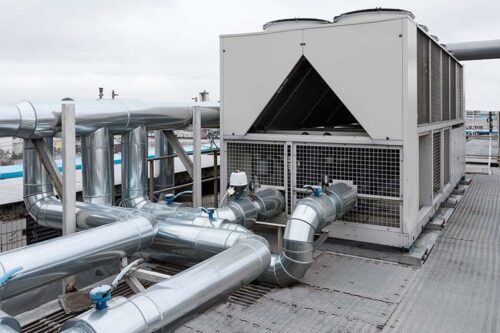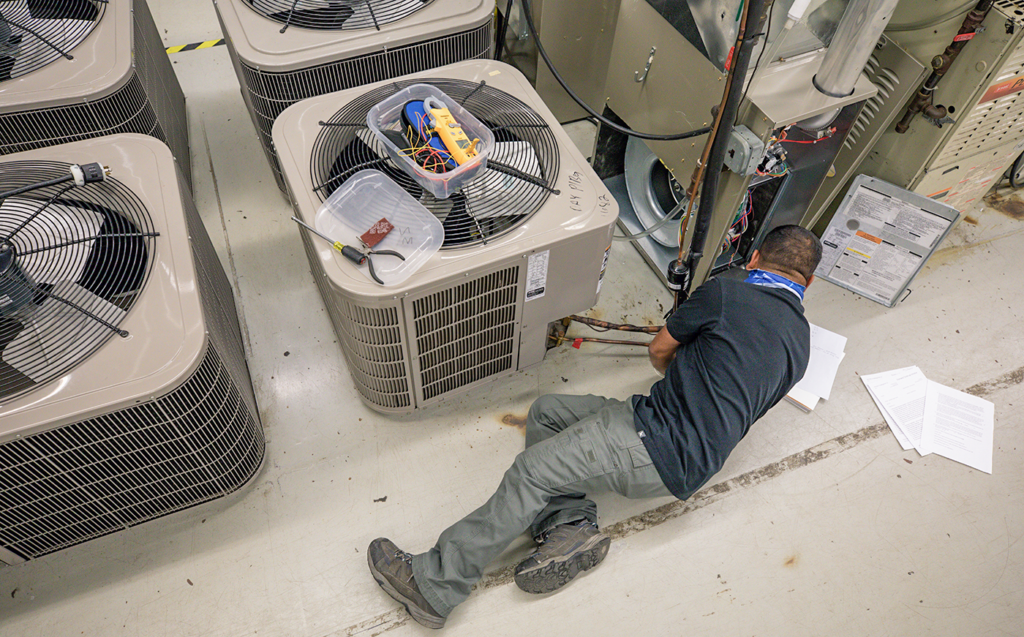Fast And Trusted Furnace Repair For Homes And Businesses
Your Guide to Picking the Right HVAC System for Your Requirements
Choosing a proper Heating and cooling system is an essential decision that can substantially influence convenience and energy effectiveness in your home. Furthermore, understanding the different types of systems offered and their power ratings can aid assist your choice.
Recognizing A/c System Types
When choosing a cooling and heating system, it is necessary to understand the numerous types readily available to meet your particular needs. The primary categories of a/c systems consist of air conditioning systems, ductless mini-split systems, warm pumps, and heater systems.
Central air conditioning systems are developed to cool multiple rooms using ductwork to disperse conditioned air. They are excellent for bigger homes calling for regular temperature control. Ductless mini-split systems, on the various other hand, give adaptability and effectiveness, as they enable zoning abilities, allowing private room temperature level guideline without the requirement for ductwork.
Warm pumps run by moving warmth instead than generating it, making them an energy-efficient option for both heating and cooling. On the other hand, heater systems make use of burning to generate heat, utilizing either gas, oil, or electrical power.
Each system has distinct advantages and considerations, including installation needs, upkeep, and total prices. Recognizing these kinds will certainly assist property owners make notified decisions based on their specific demands, environment, and spending plan restrictions, eventually making sure ideal comfort and efficiency.
Evaluating Energy Effectiveness
Energy effectiveness is a crucial variable in the choice of a HVAC system, as it directly influences both utility prices and environmental sustainability. The Seasonal Power Performance Ratio (SEER) and the Heating Seasonal Efficiency Factor (HSPF) are crucial indications for air conditioning systems, representing their effectiveness over a regular cooling and home heating period, respectively.
Furthermore, seek systems that have made the power STAR label. This qualification signifies that the devices fulfills strict energy effectiveness standards set by the U.S. Epa. Consider the system's variable-speed innovation, which permits more effective procedure by readjusting the output to match demand, even more boosting energy savings.
Additionally, correct insulation and air duct sealing can considerably influence the system's general performance. In recap, picking an energy-efficient heating and cooling system not just reduces your power costs yet additionally contributes to a more sustainable environment, making it a vital factor to consider in your getting procedure.
Assessing System Dimension
Picking the ideal dimension for a HVAC system is vital to making certain optimum efficiency and effectiveness. An undersized system may struggle to maintain desired temperatures, causing raised damage, greater energy consumption, and decreased comfort. Alternatively, an extra-large system can bring about fast cycling, which not only creates inadequacies however likewise affects moisture control and air top quality.
To examine the optimal sizing, it is vital to carry out a load estimation, which takes into consideration aspects such as the square footage of the room, insulation degrees, window dimensions, and regional climate problems - furnace installation. This calculation aids figure out the British Thermal Systems (BTU) needed for heating & cooling. In addition, it is important to make up certain requirements, such as the number of passengers and the presence of heat-generating devices

Installment Prices and Spending Plan
A comprehensive understanding of installation costs is important for property owners and companies thinking about a new heating and cooling system. The total expense of installation can differ extensively based upon a number of elements, including the kind of system, the intricacy of installment, and the place of the residential property. On standard, setup costs can vary from $3,000 to $10,000, relying on the system's size and efficiency.
When budgeting for a HVAC system, it is crucial to take into consideration not only the initial installment expenses however also any kind of extra expenses that might develop, such as ductwork modifications, electric upgrades, or licenses. Additionally, it is suggested to acquire multiple quotes from qualified a/c professionals to ensure affordable pricing.
Home owners ought to additionally factor in the potential long-lasting savings related to energy-efficient systems. While the upfront prices may be greater, energy-efficient models can cause significant financial savings on utility expenses over time.

Upkeep and Durability Considerations

Correct maintenance includes routine assessments, filter substitutes, and cleaning of ducts and coils (boilder repair). Neglecting these tasks can result in reduced effectiveness, raised power prices, and early system failure. Homeowners ought to likewise think website link about the accessibility of solution agreements, which usually give scheduled upkeep and priority solution, ensuring that the system remains in peak condition
Longevity differs by system kind; for example, properly maintained main air conditioning devices can last 15 to 20 years, while heatpump might have a lifespan of 10 to 15 years. Selecting a system with a strong track record for dependability, in addition to purchasing routine maintenance, can substantially improve the system's durability. Additionally, choosing for higher-efficiency models may result in long-lasting cost savings on energy bills, balancing the first investment over time.
Conclusion
In conclusion, picking an appropriate A/c system necessitates cautious factor to consider of various aspects, consisting of system types, energy performance, and size. Eventually, an educated decision will improve convenience and efficiency in domestic settings while making the most of energy financial savings.
Picking a suitable A/c system is an essential decision that can considerably influence convenience and power efficiency in your home.Energy efficiency is an important variable next in the option of a Heating and cooling system, as it directly affects both utility expenses and ecological sustainability. The Seasonal Power Performance Proportion (SEER) and the Home Heating Seasonal Efficiency Variable (HSPF) are vital indicators for air conditioning systems, representing their efficiency over a common cooling and heating season, respectively. Selecting a system with a strong reputation for reliability, along with investing in regular upkeep, can significantly boost the system's durability.In conclusion, picking a suitable A/c system necessitates careful consideration of numerous variables, consisting of system types, energy efficiency, and dimension.